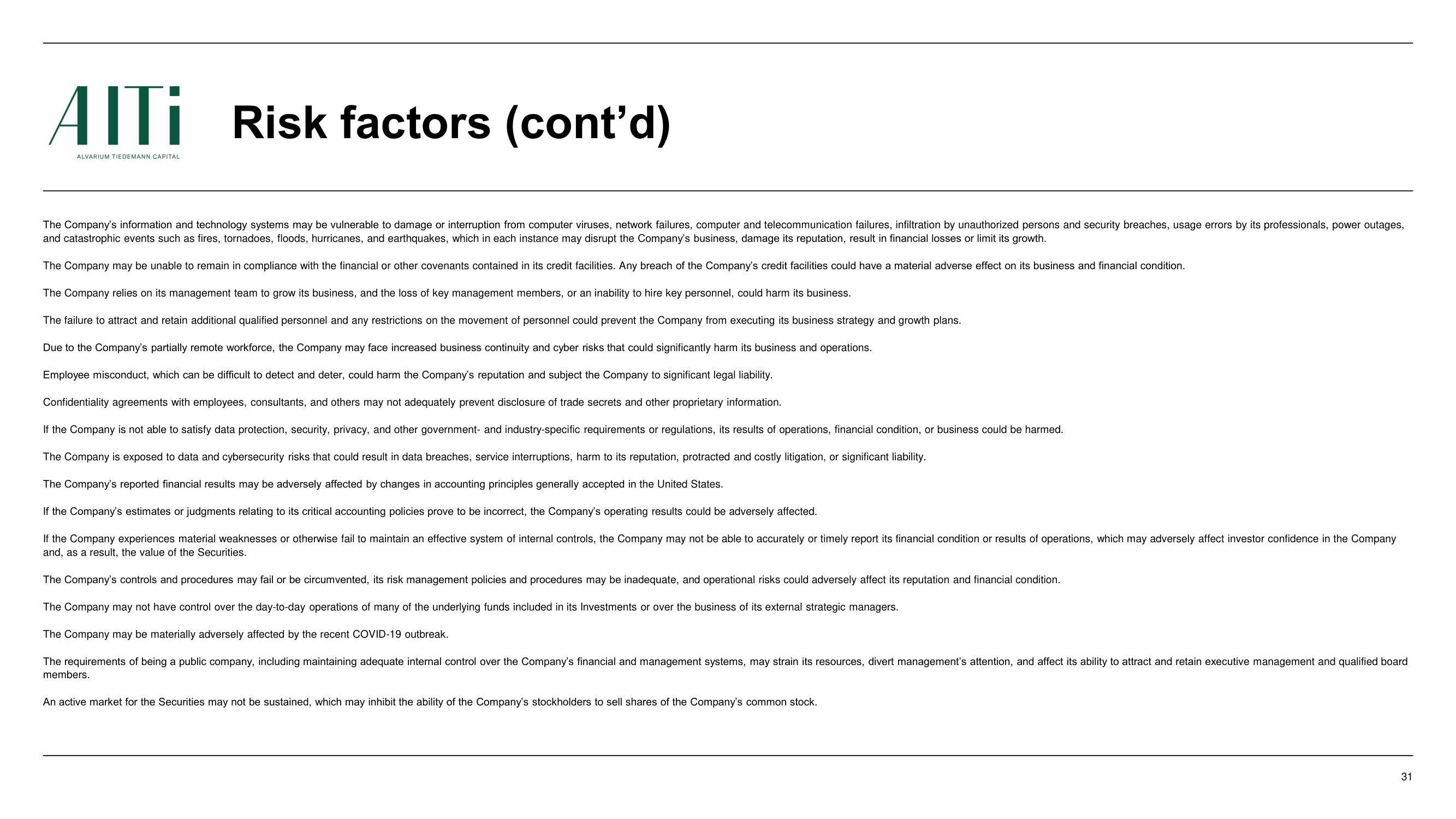AlTi SPAC Presentation Deck
AITI Risk factors (cont'd)
ALVARIUM TIEDEMANN CAPITAL
The Company's information and technology systems may be vulnerable to damage or interruption from computer viruses, network failures, computer and telecommunication failures, infiltration by unauthorized persons and security breaches, usage errors by its professionals, power outages,
and catastrophic events such as fires, tornadoes, floods, hurricanes, and earthquakes, which in each instance may disrupt the Company's business, damage its reputation, result in financial losses or limit its growth.
The Company may be unable to remain in compliance with the financial or other covenants contained in its credit facilities. Any breach of the Company's credit facilities could have a material adverse effect on its business and financial condition.
The Company relies on its management team to grow its business, and the loss of key management members, or an inability to hire key personnel, could harm its business.
The failure to attract and retain additional qualified personnel and any restrictions on the movement of personnel could prevent the Company from executing its business strategy and growth plans.
Due to the Company's partially remote workforce, the Company may face increased business continuity and cyber risks that could significantly harm its business and operations.
Employee misconduct, which can be difficult to detect and deter, could harm the Company's reputation and subject the Company to significant legal liability.
Confidentiality agreements with employees, consultants, and others may not adequately prevent disclosure of trade secrets and other proprietary information.
If the Company is not able to satisfy data protection, security, privacy, and other government- and industry-specific requirements or regulations, its results of operations, financial condition, or business could be harmed.
The Company is exposed to data and cybersecurity risks that could result in data breaches, service interruptions, harm to its reputation, protracted and costly litigation, or significant liability.
The Company's reported financial results may be adversely affected by changes in accounting principles generally accepted in the United States.
If the Company's estimates or judgments relating to its critical accounting policies prove to be incorrect, the Company's operating results could be adversely affected.
If the Company experiences material weaknesses or otherwise fail to maintain an effective system of internal controls, the Company may not be able to accurately or timely report its financial condition or results of operations, which may adversely affect investor confidence in the Company
and, as a result, the value of the Securities.
The Company's controls and procedures may fail or be circumvented, its risk management policies and procedures may be inadequate, and operational risks could adversely affect its reputation and financial condition.
The Company may not have control over the day-to-day operations of many of the underlying funds included in its Investments or over the business of its external strategic managers.
The Company may be materially adversely affected by the recent COVID-19 outbreak.
The requirements of being a public company, including maintaining adequate internal control over the Company's financial and management systems, may strain its resources, divert management's attention, and affect its ability to attract and retain executive management and qualified board
members.
An active market for the Securities may not be sustained, which may inhibit the ability of the Company's stockholders to sell shares of the Company's
mmon stock.
31View entire presentation